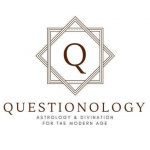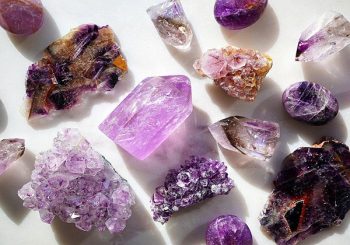Contributing Writer for Wake Up World
Spiritually aware people have long known about and promoted the use of different crystals as healing tools and divination aids, and in these tumultuous times many of us turn to crystals in an attempt to heal ourselves and our planet.
Crystals, formed under pressure over millions of years, have an intimate connection with our earth; they beguile us with their beauty, they awe us with their history and they bathe us in their energy.
But how many of us stop to consider whether our well-meaning crystal dabbling actually has a sound ethical basis? Could it be that the increasing demand for crystals is causing more harm than good – to our earth and to our fellow humans?
What’s the Problem with Crystals?
Very few mines in the world exist solely to produce crystals. The vast majority of what we consider to be healing crystals – tourmaline, quartz, citrine and amethyst, for example – are by-products from gold, cobalt and copper mines.
If you wanted to name the world’s most ethical industries, industrial scale mining would probably not be high on your list. And indeed, there are a number of issues arising from the way our healing crystals make their way out of the ground and into our shops.
Sustainability
Crystals, of whatever kind, are not a renewable resource – at least, not within any sensible time frame. Once they’re gone, they’re gone. And while they’re going – well, the environmental damage created by large-scale mining is enormous. An investigation by Earthworks into copper sulphide mining, for example, found:
“severe impacts to drinking water aquifers, contamination of farmland, contamination and loss of fish and wildlife and their habitat, and risks to public health. In some cases, water quality impacts were so severe that acid mind drainage at the mine site will generate water pollution in perpetuity.”
Human Rights
Mining is often dangerous, poorly paid and in some countries, carried out by children as young as six or seven years old. Mining is a huge industry in countries such as Myanmar and the Democratic Republic of Congo, where human rights abuses are widespread. Global Witness found that the Taliban are making enormous profits from Afghanistan’s lapis lazuli mines. Lapis lazuli is a gorgeous crystal, acclaimed for its truth-bringing properties – but do the stones in your bracelet or on your altar look quite so beautiful when the truth may be that they’ve empowered such a vicious regime? How about jade, a renowned symbol of serenity? Do you feel quite so serene once you’ve read about conditions for Myanmar’s freelance jade miners?
Regulation and Exploitation
Crystal mining is by and large unregulated. Where the crystals are by-products of other mining, the mine’s main activity may be regulated, but mines do not have to disclose profits made from by-products and these are not regulated in the same way. Although some countries, notably Canada, Finland, Spain and the Philippines, are making progress with mining regulation, the regulation in some other countries is barely fit for purpose in any case. This means that exploitation is unchecked.
Supply Chain Issues
Most shops which sell crystals do not obtain their crystals directly from the mine. Instead, they are obtained through middlemen, traders or trade fairs. Such traders are often reluctant to reveal the source of their crystals in this highly competitive market, for fear that their sources may be compromised. By the time your crystal makes it to your favourite crystal shop, the shop owners most likely do not know specifically where it originated from. This makes it genuinely difficult for ethical consumers to make good choices when it comes to buying crystals.
Is It Time for Government Regulation of Crystal Mining/Buying?
Wouldn’t that be nice? It’s highly unlikely to happen any time soon, however. Unlike the diamond industry, which did eventually move to curb the scourge of conflict diamonds, the crystal industry is not big enough or profitable enough for governments to spend time and money intervening.
If we want to move towards more ethical use of healing crystals, we’re going to have to do it ourselves. But what can we do?
Ways You Can Be a More Ethical Crystal Consumer
Ask Questions Before You Buy
Although many stores to not know the origin of their crystals, some do, and some make a point of their ethical sourcing. Seek out the shops which are able and willing to disclose their sources and do your homework. Never under-estimate your consumer power. If you choose to shop elsewhere, eventually, the message will get through.
Mine/Dig Your Own Crystals
Many countries have an assortment of “dig your own” mining opportunities – the US has dozens of them. If there is one within your reach, this is an ethical (and fun!) way to source the crystals you use. You’ll be limited to whatever is available locally, but that is a good thing. If you want to be connected to the earth, start with what’s available beneath your own feet.
If You Can’t Mine Them, Find Them
Smaller countries, or those with fewer/less widespread mineral resources, may not have dig your own mines. However, you can still find your own local crystals if you know where to look. Even here in the UK, a small country not known for its mineral wealth, we can find fluorite, agate, jet, topaz, tourmaline, calcite, aquamarine, amethyst and jasper – and probably many others too. Do some research into mineral availability in your country, and maybe ask advice from local mineral collectors. Ask permission where necessary and don’t trespass. Be respectful. And don’t forget the beach – you can find geodes on almost any beach, anywhere. Again, it’s pot luck what you might find inside them, but the connection you’ll have to the geode is strong since you found it yourself, in your own locality.
Consider Secondhand or Preloved Crystals
Shock, horror! Purists will say that you should never buy someone else’s used crystal. Bad vibes! Nonsense. When you buy a crystal from a shop, it will have passed through dozens of hands before yours, from the miner to mine officials, traders, wholesalers and retailers. It didn’t magically appear, untainted and devoid of other human contact, in your local shop. Buying secondhand crystals limits the environmental and human damage done, and preloved crystals can easily be cleaned and infused with your own energy.
Consider Synthetic Crystals
Another potentially controversial solution – but think about it. Although natural crystals have spent millions of years embedded in our earth, is that really what gives them their properties, or is it our own energies and intention? Can a lab-made crystal work just as well as a real one? Yes, I think it can. It depends what you do with it, and how skilled you are at creating intent vibrations. Bear in mind that often it’s hard to tell the difference between natural and synthetic crystals in any case; you may already own several without knowing it. If you use other tools in your spiritual work – whether it’s a singing bowl, a dowsing rod, a meditation CD or a pack of tarot cards – you’ll know that manmade objects can be every bit as powerful and useful as natural ones.
If you do use healing crystals, take some time to become aware of their origins and to think about how you can minimize the impact of any future crystal purchases you might make. Conscious consumption includes the tools we use for our spiritual work; collectively, if we start to make conscious choices with crystals, surely our work with them will become all the more powerful.
Article sources:
- https://www.theguardian.com/global/2019/jun/16/are-crystals-the-new-blood-diamonds-the-truth-about-muky-business-of-healing-stones
- https://newrepublic.com/article/148190/know-healing-crystals-come-from
Recommended articles by Nikki Harper:
- Harnessing the Power of Synchronicity
- Beyond 11:11 – The Significance of Repeating Number Patterns
- A Time to be Born and a Time to Die: Can Astrology Predict Death?
- Premature and Caesarean Birth: An Astrological Misinheritance?
- The Benefits of a Daily Divination Practice – and How to Start One
- 7 Ways to Find Awe in Your Everyday Life
- Need Answers? Looking for Insight? 7 Ways Astrology Can Help
- Alone But Not Lonely: 6 Amazing Benefits of Solitude
- Dancing in the Rain: 6 Reasons We Should All Be Pluviophiles
- Finding Time for a Daily Spiritual Practice – How and Why to Devote Your Time
- 7 Simple Steps to Start Communicating With Nature
- Getting Started with Remote Viewing: Step by Step to Strengthen Your Psi Abilities
About the author:
 Nikki Harper is a spiritualist writer, astrologer, and editor for Wake Up World. She writes about divination, astrology, mediumship and spirituality at Questionology: Astrology and Divination For the Modern World where you can also find out more about her work as a freelance astrologer and her mind-body-spirit writing and editing services. Nikki also runs a spiritualist centre in North Lincs, UK, hosting weekly mediumship demonstrations and a wide range of spiritual development courses and workshops.
Nikki Harper is a spiritualist writer, astrologer, and editor for Wake Up World. She writes about divination, astrology, mediumship and spirituality at Questionology: Astrology and Divination For the Modern World where you can also find out more about her work as a freelance astrologer and her mind-body-spirit writing and editing services. Nikki also runs a spiritualist centre in North Lincs, UK, hosting weekly mediumship demonstrations and a wide range of spiritual development courses and workshops.
Say hi at Questionology.co.uk or on Facebook.







